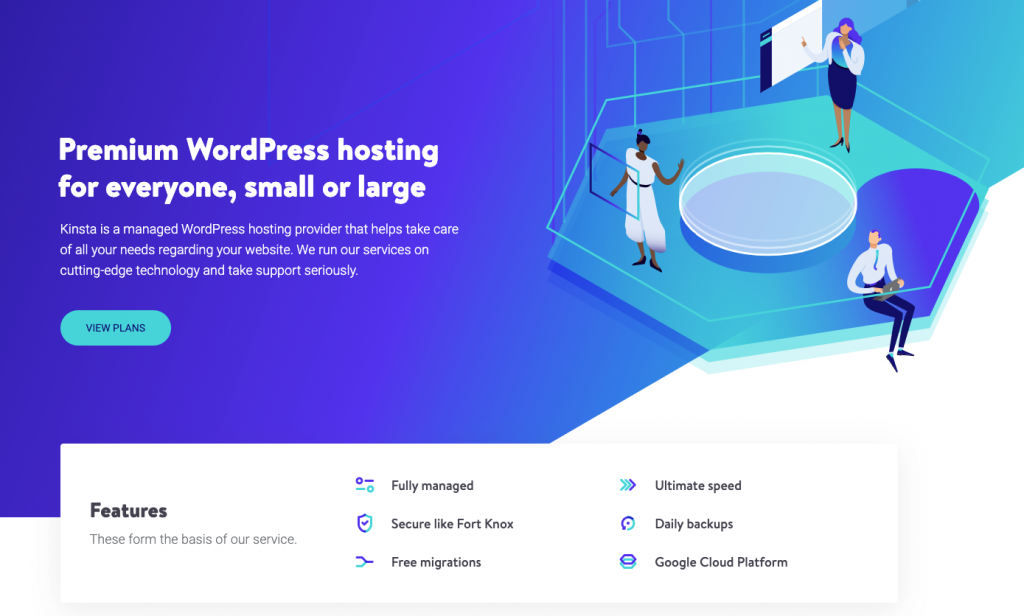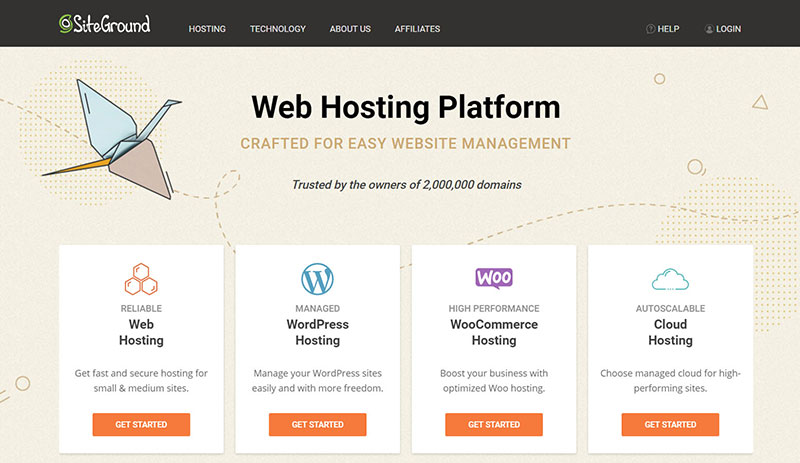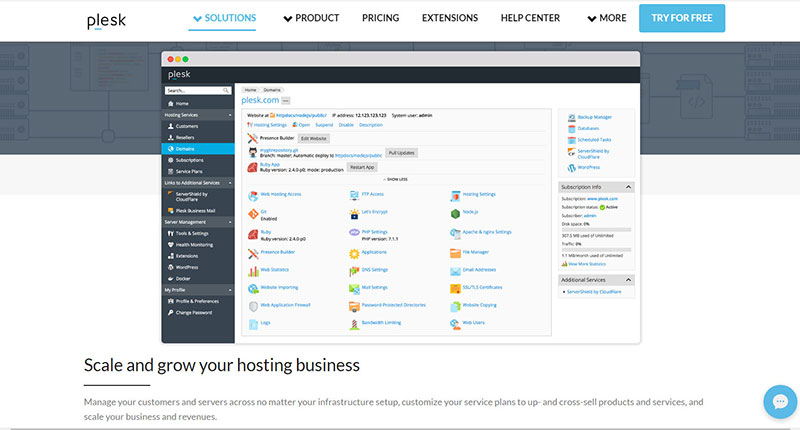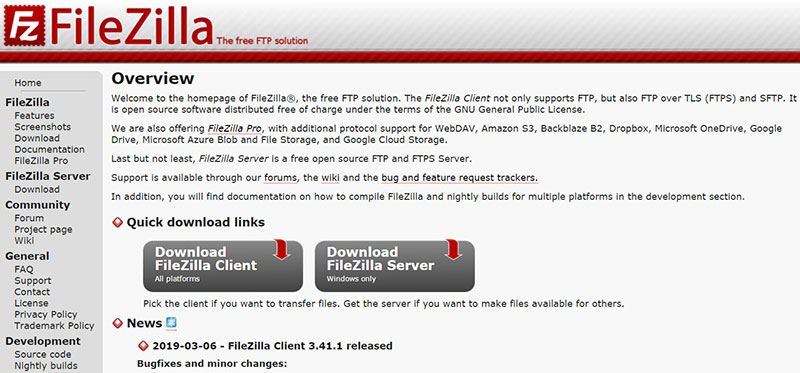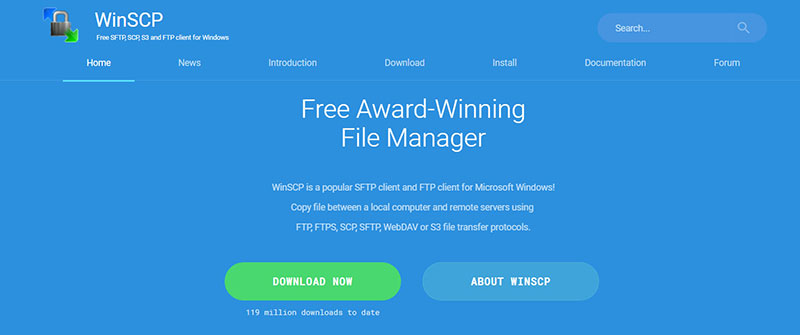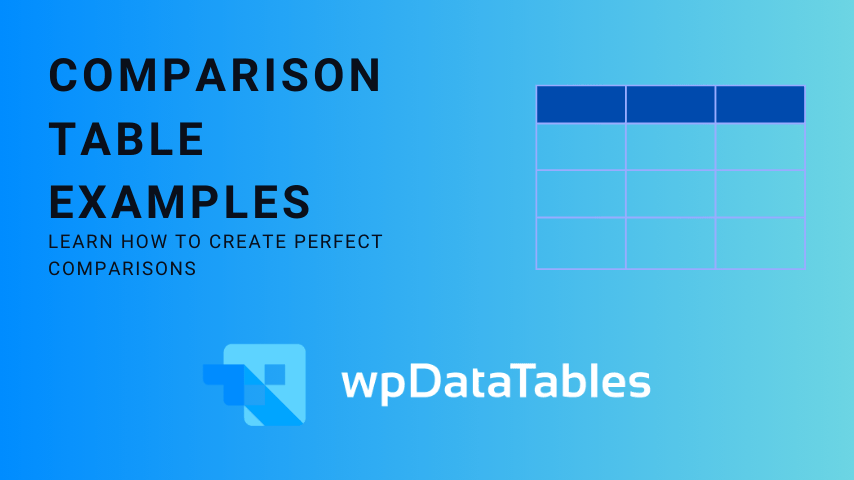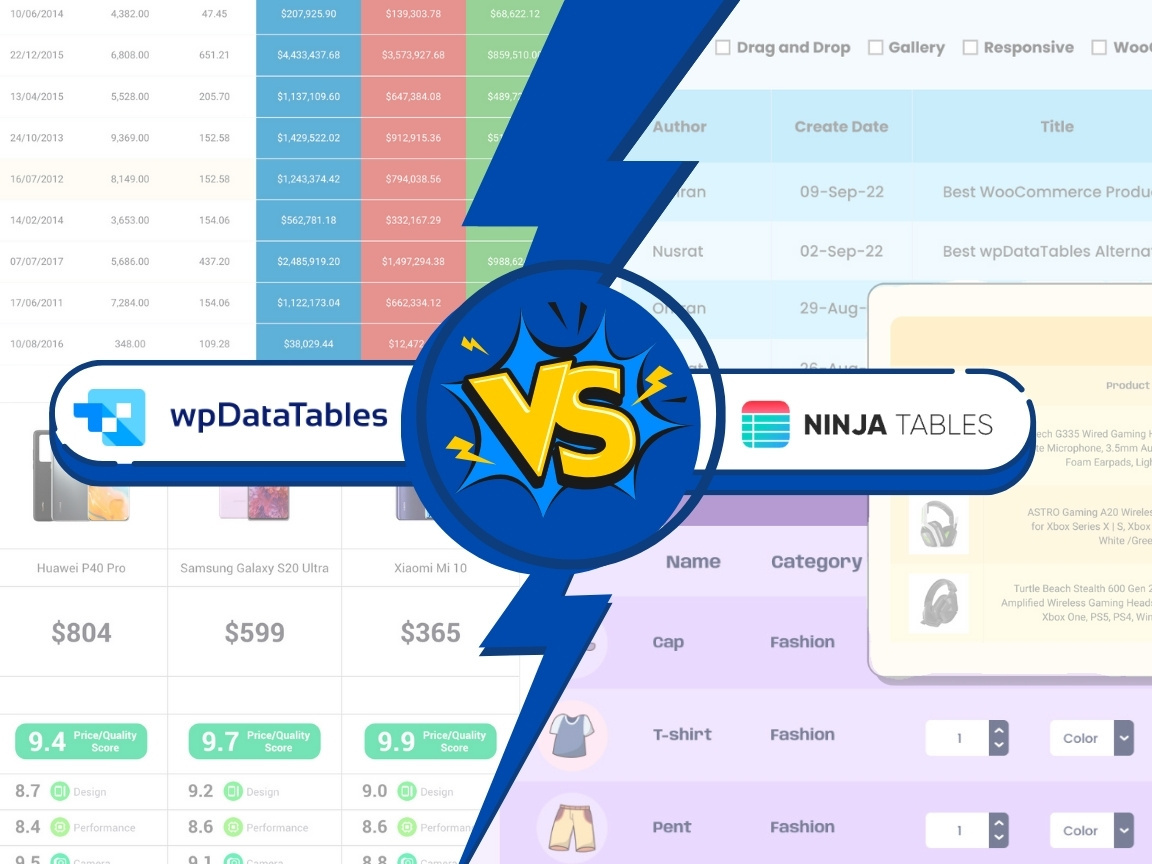Everyone can start and manage a website as long as they find relevant information to help them with the process. Learning how to host a website is not difficult when you break the steps in three: find a web hosting provider, set up the website, and publish content.
This article gathers together all the essential information you need to be able to complete the few steps mentioned above. Reading this article from start to finish should be enough to teach anyone what’s the deal with starting websites, even though they have nothing to do with tech.
Once you are ready, embark on this short journey and you will be surprised how fast you will learn how to host a website. By following all the tips that you find below provided by the team behind wpDataTables, there is absolutely no chance of failing, so you have no reason to worry about.
Table of Contents
Table of Contents
- Planning everything out
- Choosing your web host
- Choosing a web hosting plan
- Picking your domain name
- Set up your website
- Always use a Content Management System
- How to host a website with CMS?
- Setting up the CMS
- Publishing content
How to host a website: Planning everything out

When learning how to host your own website, you won’t be able to do it without having a plan beforehand. Planning each stage of this process is mandatory to make sure that you stick to your time frame and that you publish the website when required. The questions you should ask yourself before getting to work are:
- What would you like to do with your website? Is it an eCommerce one?
- How much money do you want to spend on your website? Is it a simple or a complex one?
- Will your website involve special, personalized software?
- Can you assume how much traffic will your website get ideally?
After answering these few questions, the journey of hosting your website should be pretty clear. Without defining the scope of your website and deciding whether you want to include certain elements within the website or not, you might drift away from your initial plan, which is not the result you are trying to achieve.
Choosing your web host
To host your own website, you need to find a reliable provider for web hosting services. Web hosting companies are the ones that offer people the resource needed for storing the website. This company is responsible for providing users with the connection that is necessary to access the given website.
Creating a website on your own computer is possible, but it won’t be accessible to other people unless you select the services of a web host. Your job here is to research as many web hosting companies as possible until you find one that is both accessible and meets the requirements you’ve set for your future website.
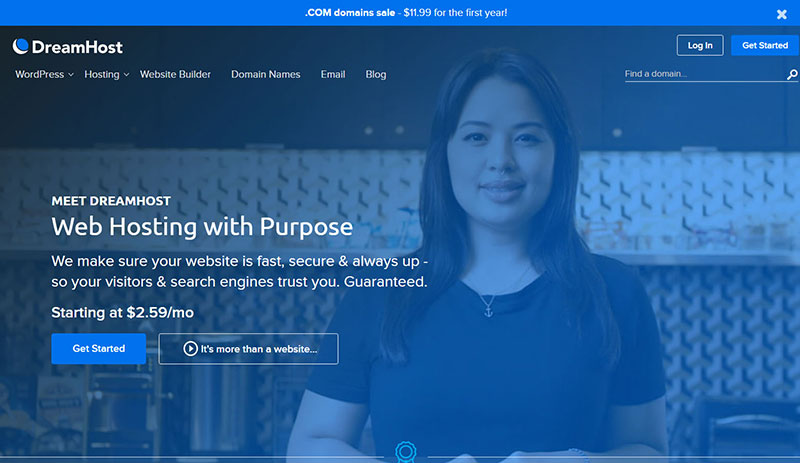
+ Keep in mind that there are many scam companies out there that promise too many things for too small of a price. Stay away from shady web hosting companies and only choose the ones that already have a good reputation. Some good examples of providers for hosting your own websites are Kinsta, Cloudways, Bluehost, Dreamhost, Siteground and Hostinger.
Of course, there are many others you can research, but these are among the most popular ones and they have great plans at affordable prices. If you want to learn how to host a website for free, you should dig deeper into picking web hosts, as you may find
Choosing a web hosting plan
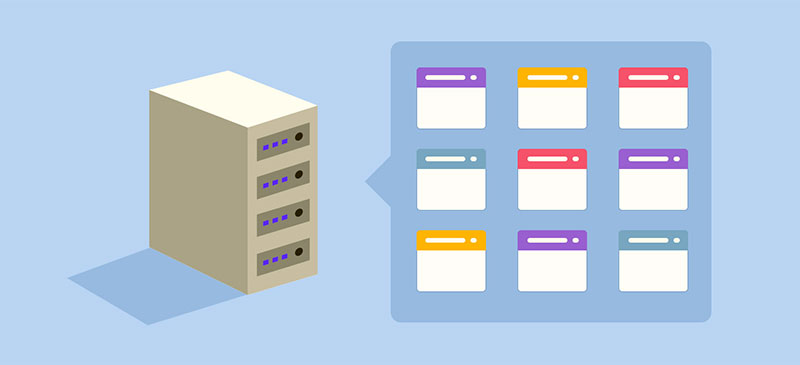
Once you have selected a company to handle your website hosting, it’s time to choose a plan. There are several types of web hosting plans:
- Shared
- Dedicated
- VPS
- Cloud
- Reseller
When learning how to host a server, you need to focus mainly on the website’s purpose. Once you are sure of your website’s purpose, choosing one of the web hosting types will be much easier. The most important factor when it comes to web hosting plans has to do with how many visitors you expect to receive. Next, you will need to think about other details that may affect your choice in terms of hosting plans.

In order to do that, imagine your website already published for a few months now. Consider how it would look, how many visitors it would have, how many pages it would feature and so on. You need to do this mental exercise to make sure that the web hosting plan that you choose offers enough resources to cover all the needs of your website. This process of how to host a website boils down to choosing the perfect web hosting company and plan. Implementing resource management software can help ensure that your chosen web hosting plan efficiently allocates resources to cover all the needs of your website.
For smaller websites, consider hosts that don’t handle VPS because you won’t need it any time soon and there’s no reason why you should pay extra for it. For more complex websites where eCommerce activities are carried, you definitely need to opt for a VPS or dedicated server. Learning how to host a website from home involves doing a lot of research on your own. You will have to choose between hundreds of web hosting companies, so pay attention to all the details about your future website.
A website that doesn’t involve high demands from a large number of visitors, you should opt for shared hosting plans. These plans are the most affordable out there and they are great for beginners who want to get started with websites. Shared hosting plans are used for most websites out there unless they have a huge visitor base. Modern servers are powerful anyway, so multiple websites can use one single server without encountering any issues.
The other hosting plans, including cloud, VPS and dedicated, are selected by people who want to grow their websites heavily. The traffic on such website is intense, meaning that it needs more resources to function properly. Of course, any of these options is visibly more expensive than a shared hosting plan, but it is suitable for big business websites.
Picking your domain name

Now that you know how to host a website from home, it’s time to pick a domain name. The domain represents the name that the user will memorize when he wants to type in your address. Everyone heard of big domains such as amazon.com. Well, you need to select one that is just as easy to remember. Follow these three rules to pick a good domain name:
- Always use something that represents your company/branding
- Make the domain as short as you can
- Make it catchy
Always keep in mind that the idea you have might be used by someone else already. Unicity is a must when selecting a domain name because you can only pick a unique one. The web hosting company you chose previously might have a free domain search tool that you can use to find out whether the domain you want is taken or not. These tools may also generate similar domains that are available.
The extension of your domain name can differ, but the most trustful one is “.com”. Other trustful extensions are “.us”, “.org” and “.net”. I know there’s a .com vs .net discussion, but .com for some reason generates more trust from people.
Once you found an available domain that you like, you can register it. By registering the domain, you can make sure that no one else is going to pick it in the meantime.
Set up your website
Learning how to host your website also involves making the necessary changes in terms of settings. After registering your domain, you can log in to the hosting account that you created. To set up your website, you will need to modify the nameservers/DNS according to your new domain name.
In case you didn’t know already, every website comes with a unique number that is called an IP address. An IP is attributed to each domain name existent on the Internet. Domains are easier to memorize, but IPs are the ones used in the technical process when identifying a computer. This is why DNS is important – it links the domain name to the IP address, making the site function properly. In most cases, the web hosting company also deals with setting up the DNS, so there is no need to dig deep into this.
Always use a Content Management System
Once you’ve learned how to host your website, you need to get informed about CMS (Content Management Systems). Web hosting providers use cPanel or Plesk, control panels that help with managing websites.
By accessing such a control panel, you will be able to customize all sorts of details about your website. Here, you can choose to install software applications to make your website easier to handle. One of these applications includes CMS such as WordPress, Drupal or Joomla. You can be in one of the following situations:
- You want to build a dynamic website (CMS)
- You want to build a static website (handwritten code)
CMS gives you easy-to-use tools that are more appropriate for editing content for people who are not that tech-savvy and can’t understand coding at a proficient level.
From any user’s point of view, using CMS is much more convenient, as they are very intuitive to use, and you don’t need to worry about making unfixable mistakes. You can create new pages and posts within the CMS and have them published whenever you want.
Static websites are not bad either if your purpose is to build a small site with just a few pages.
A CMS is definitely more convenient to use, but if there are just a few things you will need to add to your code, consider static websites for how affordable they are to develop. Site builders such as Wix and Squarespace should help you out with this one. Some of the best free website builders in 2020 you can find in the article by Website Builder Expert that might be useful for you, sorted the good from the bad using their own independent research. You could pick your website builder from there.
How to host a website with CMS?
Another question when tackling how to host a website has to do with CMS. If you decided to use a Content Management System, regardless of its type, you need to know some things about it. First of all, you should understand that it is very easy to use. Both professional web developers and first-timers use CMS. In case you know some things about HTML and CSS, even better. You will understand the basics of CMS much easier.
You will most likely use WordPress, Drupal or Joomla. These CMS are very intuitive, and they are supported by most web hosting providers, which means that you can simply go to the control panel in your hosting account and add them to your site.
CMS comes in both free and premium versions. You can choose between numerous themes and templates for your site, or you can add your own external CSS file. It’s up to you and how much you know about websites.
Setting up the CMS
The how to host your website journey doesn’t stop here. You also have to set up the CMS once you’ve installed it. Once you log in to your hosting account, look for wizards named Softaculous, QuickInstall and Fantastico.
These are auto installers that will make your job ridiculously easy. You just have to choose one of these, click on Install and let it do its magic. After installing it, you will receive the necessary information related to setting up the CMS on your website. Follow the specific steps and there you have it – a fully functional CMS. You can also customize the CMS by adding plugins to it.
Publishing content
The last thing you should know about when learning how to host your website is related to publishing content. The methods differ for dynamic and static websites. If you own a dynamic website, you can add content using your CMS, which is quite easy. You will simply click the Add New button and go on from there.
If you own a static website, things might get a bit more complicated, but not impossible to handle. You can either use a WYSIWYG editor or your own piece of code. The website will become visible once you upload the file you created to the server. Most web hosting providers come with a file uploader for that. You can also use FTPs such as WinSCP or FileZilla.
FAQ on hosting a website
What’s the Deal with Web Hosting Services?
So, web hosting, right? It’s like renting a little piece of the internet to plunk your website down on. You’ve got options from shared hosting, where it’s like sharing an apartment with a bunch of people, to having your own dedicated server, which is pretty much the penthouse suite of web hosting.
You need this to get your website out there for the world to see. Find a reliable provider, and you’re halfway there.
And How Do I Pick the Right Hosting Provider?
Choosing a hosting provider is kinda like dating; you’ve got to find the right match. Look for solid uptime guarantees; you don’t want your website disappearing on you.
Check out their customer support; are they there for you 24/7? And of course, see if they offer all the services you need. Don’t settle for the first one you find; shop around a bit.
What’s This Domain Registration Business?
Think of domain registration as claiming your little piece of the internet real estate. You need a unique and catchy name that people can type into their browsers to find you.
It’s your website’s address, basically. Make it relevant, make it snappy, and check that it’s available. Once you’ve got that sorted, you’re on your way to making your website live.
Can I Host My Website for Free?
Alright, so free hosting is a bit of a mixed bag. Sure, it’s great for your wallet, but it comes with limitations. Your bandwidth and data transfer might be limited, and you might not get as much server space as you need.
And if your site goes down? Good luck; customer support might not be their top priority. If you’re just playing around or learning, sure, go for it. But for something serious? Maybe think about paying a few bucks.
Is it Hard to Set up My Own Server at Home?
Setting up a home server, huh? You’re diving into the deep end! It’s possible, but it’s kinda like hosting a dinner party every night.
You’ve got to make sure everything’s running smoothly, deal with security issues, and be on call if something goes wrong. It gives you control but takes up time and energy. If you’re up for the challenge, more power to you, but many folks find it easier to go with a hosting provider.
What’s the Difference Between Shared and Dedicated Hosting?
Okay, so shared hosting is like living in a dorm. It’s cheaper, but you’re sharing resources with a bunch of other folks. If one of them throws a party (i.e., gets a traffic spike), your site might slow down. Dedicated hosting?
That’s your own private island. All the resources are yours, but it’s pricier. Great for big sites with lots of traffic, not so necessary for the little guys.
I Keep Hearing About WordPress Hosting. What’s That?
WordPress hosting is like a tailor-made suit for WordPress sites. Everything’s optimized just for WordPress, making things run smoother and faster.
If you’re planning on using WordPress, it’s a pretty sweet deal. You get features like one-click installations, and the server’s all set up to make the most out of WordPress. It’s not a must-have, but it’s definitely a nice-to-have.
How Important is Uptime Guarantee in Hosting?
Uptime is massive; it’s pretty much the backbone of your site’s reliability. If a hosting service promises 99.9% uptime, they’re saying your site will pretty much always be up and running. And if it does go down, they’ve got plans to get it back up ASAP. Don’t settle for anything less; your visitors and your sanity will thank you.
How Does Bandwidth and Data Transfer Affect My Website?
Think of bandwidth and data transfer like the plumbing in your house. If it’s too small and a bunch of people try to take a shower at once, well, someone’s going to be left in the cold.
You need enough to handle your traffic and the data you’re sending out. Not enough, and your site might crash or slow down when it gets busy.
What About Security Measures for My Website?
Security, my friend, is not to be taken lightly. You need SSL certificates to keep data safe, regular backups just in case something goes wrong, and you’ve got to be on the lookout for any suspicious activity. Make sure your hosting provider takes it seriously too. It’s a wild web out there, and you’ve got to keep your site and your visitors safe.
If you enjoyed reading this article about how to host a website, you should read these as well:
- Speed up WordPress: The Best Guide for WordPress Speed Optimization
- WordPress Security: How to secure a website
- What is WordPress hosting and is it worth it?

